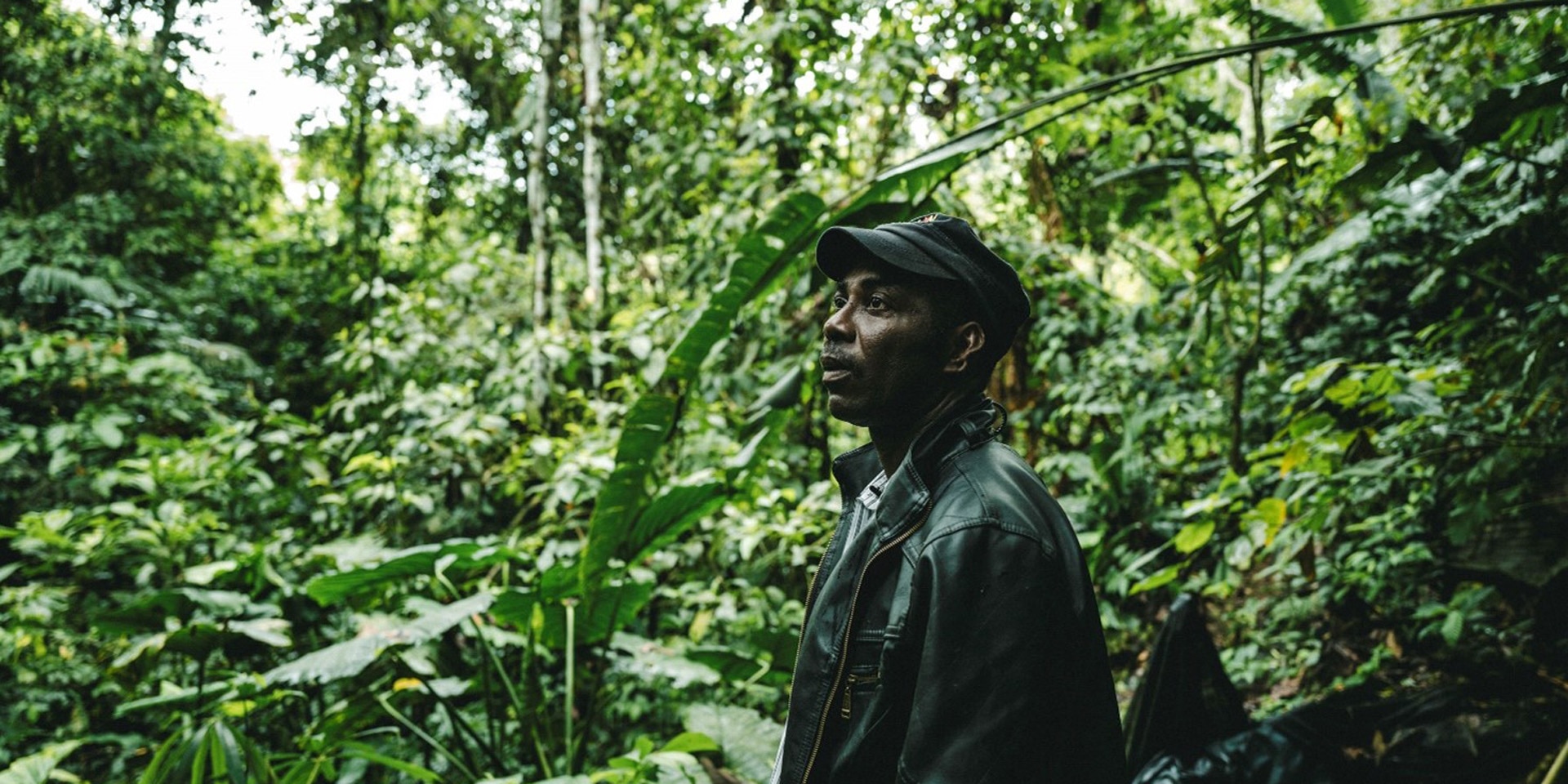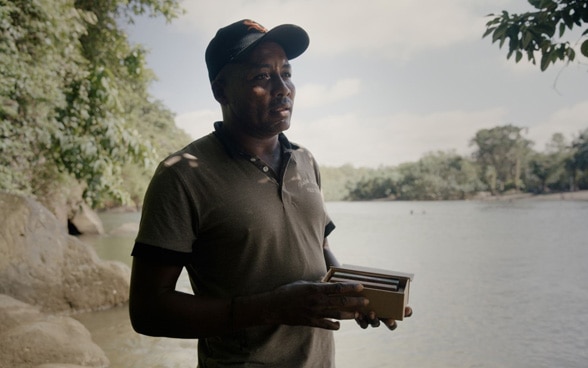Harvesting Peace: producing chocolate with former FARC combatants
The Peace Dividend Initiative's (PDI) experience in Colombia shows promising signs that supporting grassroots entrepreneurs helps secure sustainable peace. PDI's approach focuses on accelerating grants, private investments, and philanthropy to build profitable and peace-supporting businesses in conflict-affected areas.

Manigua de Paz ('Jungle of Peace'). © Gianni Camporota
For many years, Asdrúbal and Segundo lived and fought in the rugged jungles of southwestern Colombia as members of the FARC guerrilla group at war with the state. Now, in those same jungles around Meta and Tumaco, they are turning cocoa beans into gourmet chocolate bars to create livelihoods for their communities and heal the wounds of the past as Colombia seeks to build on the 2016 peace deal ending five decades of conflict that killed 260,000 people.
Under the brand Manigua de Paz (Jungle of Peace), the project brings together nearly 100 former combatants of the Fuerzas Armadas Revolucionarias de Colombia (FARC) across two sprawling cocoa cooperatives. The two areas are among the most vulnerable in Colombia and remain dangerous with the presence of various armed groups.
"The hands of the ex-guerrillas are not only made to use weapons but also to work on something very special like cacao, which for us is love, life and peace," said Segundo, who is part of the Nueva Esperanza del Pacífico cooperative in the coastal city of Tumaco. "That gives us the capacity to generate future employment for the communities and to leave a legacy for our children."
The cooperatives control every step of the process—from growing the beans to overseeing the production of four varieties of chocolate made with 70% cacao. The communities designed the packaging, using images and colours that represent their culture and environment.
"We were involved in a military track, but now we have moved on and live a totally democratic life," said Asdrúbal, from the Judío Errante cooperative in Meta. We put down our weapons and are thinking about different things, such as finding a way to live with dignity and economic sustainability."
The bean-to-bar business has been incubated by communities in partnership with the Peace Dividend Initiative (PDI), a new organisation headquartered in Geneva that aims to harness market forces for peace. PDI’s CEO, Liam Foran, explains the organization's goals: "Although in 2024 conflict is on the rise, at the grassroots in many countries bearing the brunt of violence, there is a surprising amount of hope, resilience, and creativity."
PDI aims to support talented local entrepreneurs in building businesses that exert stability in fragile communities. At the heart of the PDI model is creating employment and income growth to provide powerful economic incentives for people to move away from violence and towards peace. To achieve these goals, PDI offers private sector partners and philanthropic actors an ecosystem to invest in profitable ventures in conflict-affected contexts. Working closely with peace mediators on the ground is essential to identify opportunities and accompany peace-supporting businesses. PDI is active in many countries around the world, including the Central African Republic, Ukraine, and Afghanistan, to name a few.

After promising results piloting PDI’s model, the goal is now to scale this by launching a direct investing mechanism to provide capital to peace supporting businesses globally. As a quarter of the world’s population, 2 billion people, live in conflict-affected areas, SDG 16 (Peace, Justice, and Strong Institutions) remains one of the most underfunded Sustainable Development Goals. To date, the main form of private sector engagement in peace-making has been philanthropic, and for a minimal amount – the global annual funding for peacebuilding is around USD 200 million and represents less than 1% of philanthropic donations.
In 2024, in partnership with leading Geneva-based impact investor Symbiotics, PDI will launch The Peace Venture Fund (PVF). The PVF, the first of its kind, will adopt a venture and impact investment approach to encourage entrepreneurship in fragile and at-risk countries. It will allow a quick deployment of private capital in areas otherwise ignored by traditional market mechanisms. The PVF leverages PDI’s access and expertise in business creation and development in fragile contexts and Symbiotics’ experience in impact investing in frontier markets.
The PVF aims to deliver both financial returns and positive peace impact over 7 to 10 years. Peace impact will be assessed and tracked by the innovative +P framework. The +P developed by PDI blends 20 years of peacebuilding impact measurement with classic business metrics to allow a flexible system of ensuring businesses within the PVF are and remain peace-supporting.
Back in Colombia the communities have big plans for their organic chocolate. Manigua de Paz has recently become available in retail outlets with the goal of expanding in coming years to reach a potential market of 52 million residents and the 4 million tourists who visit each year. Online sales and a push into Europe are also in the pipeline.

"From humble beginnings, Manigua de Paz is a clear and encouraging sign of success in harnessing market forces for peace in Colombia's still fragile environment," said PDI's Director of Peace Ventures Adria Galdeano. "It helps to connect the promise of peace with sustainable income and foster trust among communities so they can move beyond many years of conflict with real opportunities for cooperation and development."
On top of the livelihood dividends, the project aims to change negative perceptions around former FARC combatants, to reduce the risk of them returning to violence and – by enhancing investment in the region – to transform the one-sided narrative around Colombia and its conflicts.
"Creating a viable business in Meta and Tumaco is a testament to the hard work the communities have done and the risks they've taken," said Liam Foran. "Just as Manigua de Paz is adding value by making finished chocolate from cacao, it's also shifting the narrative and perceptions from generations of conflict into sustainable and ethical businesses that will help to lock in long-term peace for Colombia. This successful project gives us confidence about expanding our innovative approach in Colombia and other countries grappling to find a path out of conflict."
Peace Dividend Initiative
The Peace Dividend Initiative (PDI) is a peace-dividend accelerator, bridging the gap between peace mediation and economic actors to harness market forces for peace in conflict-prone regions. Headquartered in Geneva, it is connected to peacebuilders, international organisations, governments, investors, and entrepreneurs. The SDC is a strategic partner of PDI.
